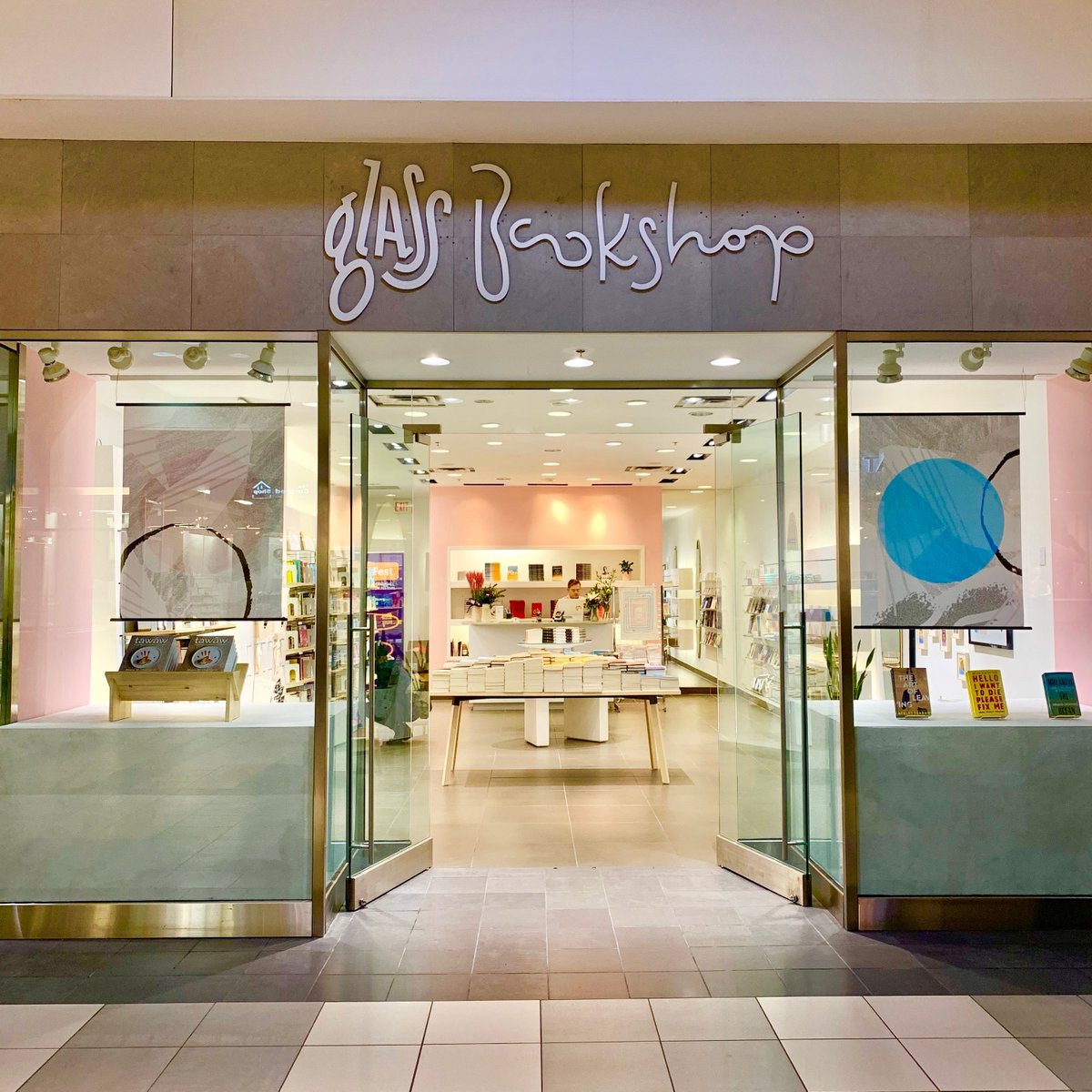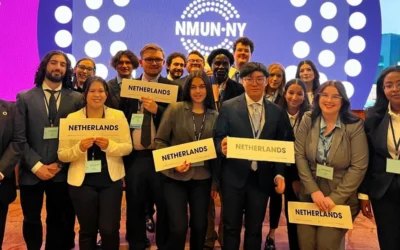In the early days of the pandemic, headlines were liberal in their description of soaring sales. Toilet paper panic buying was, perhaps, as expected as the sudden spike in alcohol and cannabis purchases, but a surge in book sales? Less so.
Nonetheless, around the world, people facing those initial 14 days of self-isolation were quick to reach for reading material. According to the BBC, in the United Kingdom, online sales for the popular bookstore chain Waterstones rose by 400 percent. By and large, the intent of book-buyers seemed to be escapism — though nonfiction genres focused on self-improvement, home repair, and cooking also saw an uptick.
As the reality of staying home and occupied for more than just two weeks has been accepted, and as we’ve accustomed ourselves to indefinitely closed libraries, having access to fresh reading material means doing so digitally or having the books be delivered.
Recognizing their community’s need for continued access to books, Matthew Stepanic and Jason Purcell of Glass Bookshop announced on March 13 that they would be doing free deliveries for those living within Edmonton, Sherwood Park, and St. Albert. The response, according to Stepanic, has been amazing.
“It started out good because it was just a dozen orders that came in over the first weekend so that Monday morning I came in and said, ‘Yup, I can do this, get out there and deliver these books,’ but then it kind of started doubling. Wednesday I had just over 20 orders to deliver, but by Friday it was 30. There’s been an incredible amount of support from the community and it’s keeping us busy,” he says.
Stepanic, who does the deliveries accompanied by his corgi, Bob, believes that while the COVID-19 pandemic has driven the demand for their wares, there is also a symbiotic relationship between the store and those who support it. “The community that wants to support us and see us through this crisis also has that need to read,” he says, adding, “They know they’re going to want to access the bookshop once we can open and gather and hold events again, so that’s the main reason they’re choosing to support us.”
“A lot of people are choosing to buy books that they really need at this time,” he notes. Popular titles have included Emily St. John Mandel’s Station Eleven (a former MacEwan book of the year), and Larissa Lai’s Tiger Flu. Though it’s darkly ironic, Stepanic says they’ve also been getting special orders for another book called Pandemic.
“I think those clearly show that there is a need to read right now, and there is a knowledge-seeking that people are doing to understand the time that we’re in,” he says, adding that there is also a need for escapism and the opportunity to reflect on the experience from a distance.
Stepanic knows that, as much as reading seems to have come back in vogue, it isn’t always easy. “I’ve heard from a couple of friends that they’re having trouble reading right now because so much of their time is also given to their kids, they’re working from home for a couple of hours a day, they’re fulfilling more of a family caregiver role like they’re cooking dinner every day and it’s good to build something of a routine, and a lot of time reading time doesn’t fit into that or when they get the chance they’re thinking too much outside of it,” he says. There is also the simple fact that much of our time, whether we willingly give it or not, is now devoted to worry and concern.
“I think a lot of people’s so-called free time is being given up to that and so it’s hard to concentrate on things like reading or things that call them to take their minds from something,” Stepanic notes. Television, by contrast, offers easy comfort through passive consumption and is something which Stepanic himself has turned to during his hours of relaxation. But, with many now working or studying from home and largely tied to our screens, the reassurance of a physical book is not something to be discounted.
Indeed, what Stepanic calls “the comfort of the physical, tangible book” is part of why he and Purcell started Glass Bookshop in the first place. The other reason was their shared vision of what a bookstore can and should be for a community. Ironically, offering delivery was in complete opposition to this.
“We actually hadn’t done anything like (this) before,” Stepanic says, “our focus with the bookshop and our philosophy behind it was that bookshops are gathering spaces. We were really aiming to be more of a community hub, so it hadn’t crossed our minds to do something like this.” As the situation changed, and they realized the best way to prevent the spread of COVID-19 would be to stop gathering that community, Stepanic says it became obvious that “we had to serve the community in a different way.”
While the initial goal of the bookshop was to bring people in, have them “broaden their perspectives,” “discover titles that they wouldn’t have known that they wanted to read”, and “show them more queer and BIPOC writing,” Stepanic and Purcell have done their best to continue in this spirit, while also offering special orders.
“We’ve got a Staff Recommendation now,” Stepanic notes, along with “what’s top-selling, what’s stuff we’re guaranteed to order in so people still kind of get to browse what we’re doing and what we’re curating on the website. But it just seemed that if people wanted a book, we would get it to them.”
For Alexis Kienlen, local author and journalist, independent bookstores such as Glass Bookshop are not only a source of comfort as a reader but as a means of support for her own writing. Kienlen, who has written two books of poetry and one biography, now has a fourth book published — Mad Cow — but all of the novel’s planned promotions took a backseat to social distancing.
“I was going to do some readings and a tour, and all of that is pretty much cancelled,” Kienlen says. “For writers, there’s a big sense of loss with the spring touring season being cancelled. There’s a feeling that you can have that community online, but it’s not the same as in person.”
Despite this sense of loss, Kienlen believes that local bookstores are trying to preserve that sense of community. “Independent bookshops are really great at providing a home for individual authors, hand-selling or word-of-mouth selling, promoting through the community, and you can do a lot of things with independent bookshops that you wouldn’t otherwise be able to,” she notes.
“They also employ people, keep the money in the community, and let’s face it, like in a time when we can’t really leave our houses, home-delivery is really great and is what we need, but we also like to gather and meet person to person, so independent bookstores create a gathering place for people to learn about authors, meet writers, find out about books and authors that live in their community.” Or they will, once we can gather in groups again.
In Kienlen’s case, this sense of community includes the personal touch of hearing how many people have purchased her book. Mad Cow was due for official release on April 15, but Kienlen says that several independent bookstores got it ahead of time, including Glass Bookshop.
“Last week I think Matthew tweeted at me, and 12 people had ordered Mad Cow, which is pretty phenomenal and just a nice spirit of support from the community.”
As part of their innovative approach, Glass Bookshop is also doing a subscription service, “which is really good” according to Kienlen, “and it’s kind of exciting to get a package right now.”
Niuboi, a local performance artist, agrees. They recently received an order from Glass Bookshop, “hand-delivered in a beautiful envelope. It was lovely.” Though Niuboi is quick to clarify that Stepanic did not actually deliver the package directly into their hands, they say that confirmation of the package’s successful receipt was made, and thus appropriate social distance was maintained.
Niuboi ordered Sissy by Jacob Tobia, which they described as a “coming-of-gender story.”
“I have been wanting to read it for a while,” they say, “but hadn’t gotten around to picking it up. So when Glass Bookshop said they were doing deliveries, I went on their website and ordered it.”
The book satisfies Niuboi’s reading taste. As someone who doesn’t read a lot of fiction, they say they don’t necessarily read for escapism, but to connect. “That’s what I love about reading autobiographies, especially queer autobiographies, is that people are often funny. They make fun of themselves or use humour to protect their emotions or even just to tell a good story. I love learning about other peoples’ lives, seeing myself in other peoples’ stories, especially in gender identity stories.”
Similarly, Niuboi believes that what they read, or listen to, or watch during their period of self-isolation will inform their own art in the future. “Everything that we’re absorbing is going to influence us, there’s going to be a lot of COVID art coming out of this,” they say, adding, “the most important thing is for that balance — using this time to express my creativity but also trying to not let my mind run and my thoughts take over and not, as we say in the business, go crazy.”
“Having things like books and even colouring, and TV, video games, all of these things to keep my mind occupied for periods of time has been really nice because it allows me to funnel the stuff that I’ve absorbed into my own creativity.”
As someone who has taken self-isolation seriously from the beginning, Niuboi spends most of their time within their apartment. “Almost everything coming into my home, whether it’s supplies or food, is coming by delivery,” they say, adding that there are “thousands of options” for such purchases. And though Niuboi admits they’ve ordered a few from Amazon, they’re also “trying as much as possible to find those local options, because Jeff Bezos is gonna be just fine at the end of this, but I don’t know if Glass Bookshop is, so if I’m going to treat myself I also want to treat the community. Because we’re all going to be handing around the same five dollars for a long time, so we might as well keep it within the community so we don’t all fall apart and turn into the Amazon Hoarding Hunger Games Wars. So, y’ know, shop local.”
Of course, this is often easier said than done. Niuboi, who was laid off and had to be quarantined for their own health, acknowledged that they — like so many — are very much bound by the finances available to them. “I’m trying to spend my pennies in thoughtful ways,” they say because the impact of supporting local is really visible. “You know the person, or you see them within your realm of people that you know, or your internet realm, and that can feel really good to see the impact of immediately supporting a business.”
Niuboi adds that the free delivery from Glass Bookshop meant that if not actually having saved them money, their purchase was no more expensive than it would have been from a larger bookstore. “So if it’s the same across the board, you might as well go with the local options because you’re keeping a friend employed.”
It’s a sentiment that Niuboi hopes others will keep in mind. “As an artist, I hope that people are looking to my work or to my fellow artists’ work and are thinking ‘how can we support them through this?’ too. As an artist, I am thinking about other artists and other local shops and I hope that the same thing is happening in the rest of the community. We really need to be thinking outwards towards our marginalized and at-risk communities, and bolstering them at these times.”
As Niuboi notes, it’s not that difficult to do.
“You can do good just by reading.”





0 Comments